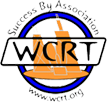
New TRID Requirements are Delaying Residential Real Estate Closings
The new TILA-RESPA Integrated Disclosure (TRID) Rule went into effect October 1, 2015 and is already delaying residential real estate closings. TRID requires loan documentation consisting of two new forms: the Loan Estimate and the Closing Disclosure to ensure compliance. These new forms consolidate the TILA-RESPA forms and are meant to give consumers more time to review the total costs of their mortgage.
The Loan Estimate is due to consumers three days after they apply for a loan, and the Closing Disclosure is due to them three days before closing. However, the three day rule is only applicable if the disclosure is delivered personally. If the disclosure is delivered any other way, the Rule “deems” the disclosure was made three business days later, making the disclosure period six or more days before the closing.
Because there are huge potential penalties to mortgage lenders if they do not make the required disclosures on a timely basis, mortgage lenders are interpreting the new rules very conservatively and are adding additional days for the disclosures as a cushion. Thus, rather than using three days before closing as a cutoff, the cutoff for a particular transaction might be 7 – 10 days or more.
Feel free to contact an Illinois attorney experienced in handling all aspects of real estate closings for both buyers and sellers at Logan Law, LLC if you have questions about sale of your Chicago area real estate or any other area of the laws governing the purchase or sale of real estate.
New Mortgage Rules Likely to Delay Future Residential Real Estate Closings
The Consumer Financial Protection Bureau (“CFPB”), a new federal agency created in 2010, is imposing new financial disclosure rules for residential mortgage loans applied for on and after August 1, 2015. The new rules will eliminate the HUD-1 settlement statement which has been part of residential closings for many years and replace it with new forms, one of which, the Closing Disclosure, must be sent to the borrower/buyer a fixed number of days in advance of closing. Because large fines of as much as $1,000,000 per day can be imposed on lenders for violating the new rules, it is expected that lenders will err on the side of caution in following the new rules.
Under the new rules the Closing Disclosure, which contains all of the financial information about the closing must be received by the buyer/borrower at least three days before closing. Since it is expected that most lenders will mail the disclosure and because of the time periods for receipt of mailings imposed by the new rules, the Closing Disclosure will have to be mailed more than a week before a closing can occur. Adding to that period, the additional time to be imposed by national lenders for preparation and processing of the form, many lenders are likely to require final closing figures as much as 12 to 14 days in advance of closing.
Thus, for a real estate deal which today could be closed a day or two after final “clear to close” loan approval, the new rules will likely push off that same closing for two weeks after final loan approval.
Feel free to contact an Illinois attorney experienced in handling all aspects of real estate closings for both buyers and sellers at Logan Law, LLC if you have questions about the sale of your Chicago area real estate or any other area of the laws governing the purchase or sale of real estate.
Foreclosure or Other Real Estate Law Questions? Give Us a Call
In times of financial difficulties, which can happen to anyone, one major concern is homeowners who fear they may face foreclosure. Your first instinct is to hire a lawyer; however, there are steps you can take that may save your house without the added expense of attorney fees. Here are a few options you should explore before giving us a call.
Your lender may arrange a repayment plan based on your current financial situation. There can be a reduction or even a suspension of your payments for a determined amount of time. This is called a special forbearance and it is worth looking into.
A mortgage modification allows you to refinance your debt and extend the term of your mortgage loan. This helps you as it may reduce your monthly payments. If you qualify, your lender may work with you to obtain an interest free loan from HUD that will decrease your monthly payments.
Other options available to avoid foreclosure include a pre-foreclosure sale. This allows you to sell your property, pay off your loan and avoid credit rating damage. The last line of defense is a deed-in-lieu of foreclosure. Basically, this is where you just give your house back to the lender. Again, there are qualifications that need to be met before this can happen.
If you have any questions concerning foreclosure or real estate law, schedule an appointment and we will see what we can do for you.








